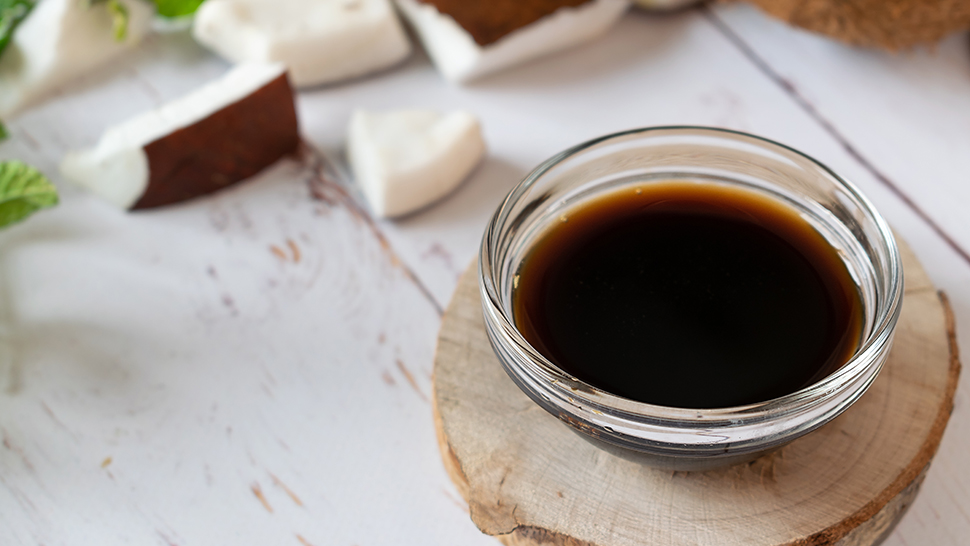
What’s the buzz?
Coconut aminos are the healthier, umami-rich alternative to soy sauce that influencers say you should be putting on everything.
What does the science say?
Made from a fermented sap of the coconut blossom mixed with salt, coconut aminos don’t actually taste anything like coconut. In fact, this liquid’s slightly sweet, but mostly savory flavor profile makes it a good stand-in for soy sauce. Coconut aminos were originally made popular by those following the Paleo diet as this condiment is soy-free and gluten-free (both of which Paleo folks avoid), but influencers and bloggers are touting its possible health benefits, making it seem like a go-to ingredient for healthy cooking.
Coconut aminos sauce is a good alternative to soy sauce or tamari for those with a soy allergy, celiac disease, or gluten sensitivity. It also contains significantly less sodium than regular soy sauce (approximately 130mg per teaspoon vs. 320 mg per teaspoon) and even slightly less than low-sodium soy sauce, which has around 190mg per tsp. That said, it’s still not a low-sodium food.
But that’s where the real benefits stop. Claims that it’s a rich source of amino acids — the building blocks of protein— as well as B-vitamins and vitamin C, or that it helps reduce the risk of heart disease, diabetes, and colon cancer, have no scientific backing. In fact, if you look at the nutrition facts label of some brands of coconut aminos, it actually states that it’s not a significant source of vitamin C and other nutrients. Coconut aminos do contain a variety of amino acids — most notably glutamate, which gives it that drool-worthy umami flavor (the same one that also makes monosodium glutamate, a.k.a MSG, delicious). But the sauce contains zero grams of protein per teaspoon.
Lastly, the claims around disease risk appear to be related to coconut aminos’ lack of MSG, phytoestrogens, and phytic acid; however, none of these have actually been tied to a significant risk of disease. Also, most soy sauce — which is what coconut aminos is compared to when these claims are made — doesn’t contain MSG nor significant amounts of phytoestrogens and phytic acid, either.
What’s the takeaway?
Coconut aminos can be a great swap for anyone avoiding soy and gluten or looking to limit sodium, while still enjoying the umami punch that soy sauce can bring to many dishes. However, don’t believe any of the other health claims around this ingredient, and just enjoy it for what it is — a super savory flavor enhancer.
Read more about the (lack of) science behind coconut amino health claims and how you can use them in cooking.